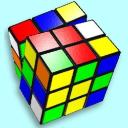Yahoo Answers is shutting down on May 4th, 2021 (Eastern Time) and beginning April 20th, 2021 (Eastern Time) the Yahoo Answers website will be in read-only mode. There will be no changes to other Yahoo properties or services, or your Yahoo account. You can find more information about the Yahoo Answers shutdown and how to download your data on this help page.
Trending News
A circle centered at the point (1,1) with radius 5 is defined by (x-1)^2 + (y-1)^2 = 25. Find where the derivative is undefined.?
A circle centered at the point (1,1) with radius 5 is defined by (x-1)^2 + (y-1)^2 = 25. Find the derivative of this curve and state at which two ordered pairs, (x,y), the derivative is not defined.
Would it be (-4,1) and (6,1)?
I took the derivative and got -(x-1)/(y-1)
6 Answers
- Jeffrey KLv 72 years ago
You can do this without calculus. Draw your circle. Draw vertical tangent lines on the left and right sides of the circle. They touch the circle level with its center where y is 1. There are one radius to the left and right of the center. x = 1 - 5 = -4 and x = 1 + 5 = 6
The points are (-4, 1) and (6, 1)
- MyRankLv 62 years ago
Given that
(x-1)² + (y-1)² = 25
Radius = 5
Center = (1, 1)
(x-1)² - 25 = -(y-1)²
Differentiation with respect ‘x’
2(x-2) - 0 = -2(y-1) dy/dx
2(x-1) / -2(y-1) = dy/dx
dy/dx = (x-1) / -(y-1)
dy/dx = 0
(x-1) / -(y-1) = 0
x - 1 = 0 → x = 1
now derivative is undefined when
x = 1, y = 1.
Source(s): http://myrank.co.in/ - ComoLv 72 years ago
2 ( x - 1) + 2(y- 1) dy/dx = 0
dy/dx = - (x - 1) / ( y - 1 )
dy/dx = (1 - x) / (y - 1)
Undefined for y = 1
and
x - 1 = ± 5
x = - 4 , x = 6
Undefined at (- 4 , 1) and (6,1)
- Φ² = Φ+1Lv 72 years ago
(1 ± √25, 1) which is (-4,1) and (6,1)
The tangent to (x-1)^2 + (y-1)^2 = 25 at (x₀,y₀) are (x₀-1)(x-1) + (y₀-1)(y-1) = 25
This is vertical when y₀=1, where (x-1)^2 = 25
- How do you think about the answers? You can sign in to vote the answer.
- Steve ALv 72 years ago
y' = (1 -x)/(y -1)
Derivative is undefined where y-1 = 0
(x-1)^2 = 25
x-1 = 5 ; x = 6
-(x-1) = 5 ; x = -4
(6,1) (-4,1) check
- PuzzlingLv 72 years ago
That's correct.
You can't have y=1.
And the places on the circle where y=1, are x=-4 and x=6.
Answer:
(-4,1) and (6,1)
P.S. Those are the left and right sides of the circle where a tangent line would be vertical (essentially an infinite slope).






